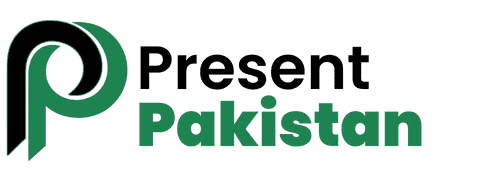Introduction
Why career planning is more important than just having a job is a question many professionals ignore in their frantic quest to get paid. A job may serve an immediate purpose, but career planning offers your future a level of direction, development, and satisfaction. Instead of being focused on living paycheck to paycheck or bouncing between jobs with no intention of progress, having a career plan means your work is based on how your strengths, passions, and plans fit together. Career trajectory, job satisfaction, professional development, skill development, career goals, career growth, and long-term success.
Table of Contents
- The Importance of Career Planning Beyond Merely Having a Job
- The Advantages of Career Planning for Professionals
- The Career Planning Process Step by Step
- Real-Life Lessons from Career Pat
- Focus Keyword Section: The Importance of Career Planning Beyond Merely Having a Job
- FAQ Section
- People Also Ask (PAA)
- Call to Action
- Conclusion
1. The Importance of Career Planning versus Just Having a Job
Most people apply themselves with hard work; however, they do so without direction. A job will often pay the bills; however, it generally does not build anything meaningful for your future. A career plan builds a foundation for success, stability, and satisfaction in your life. A roadmap keeps you from wandering aimlessly into roles and experiences that don’t contribute to a larger meaning.

:
Key Takeaways
A job will pay today, but a career plan will secure tomorrow.
Planning will help you save years of wasted time in meaningless work.
2. Advantages of Professional Planning
a) Clarity and Focus
Planning eliminates the guesswork. It gets you crystal clear on what you want for your career and the skills to develop to achieve it. Otherwise, you might risk running into confusion and frustration to the point of burnout!

b) Job Satisfaction
A career based on your strengths and values is both meaningful and enjoyable.
c) Growth & Adaptability: Industries move quickly.
Career planning helps you build skills so you remain competitive
d) Risk Management
You do not have to jump from job to job in fear; your career moves can be proactive and informed
Risk Management
You do not have to jump from job to job in fear; your career moves can be proactive and informed
e) Long-Term Success
It changes you from a short-term earner to a long-term achiever.
Key points
Career planning increases motivation and resilience.
It fundamentally alters jobs into opportunities for growth.
3. The Process for Career Planning
Step 1: Self-Assessment
Evaluate your skill set, values, and interests to avoid selecting the wrong career.

Step 2: Research & Discovery
Research different careers or industries, roles, and future trends or forecasts
for the best interests of you.
Step 3: Establish SMART Goals
Specific, measurable, achievable, relevant, and time-based goals will
Help define your path.
Step 4: Skill Development
Reskill and upskill regularly to remain competitive in an ever-changing job market.
Step 5: Establish Networking & Mentorship
Your connections are links to opportunity and advice.
Step 6: Review and Revise
Review your goals carefully at least once a year to revise for new trends or
Personal changes.
Key Points
- Career planning is an ongoing process, not a single decision.
- Flexibility is essential now more than ever in the changing job market.
4. Learning from Career Exits Realistically
Successful professionals do not usually follow a straight trajectory – they circumnavigate, upskill, and take risks; for example:

Software engineers into AI research (ultimately upskilling).
A marketing executive is moving into an entrepreneurial role and leveraging their plans to do so.
These narratives simply indicate that career planning creates resilience. Even when jobs change, the career-planning individual | individual who has planned ahead—has the opportunity to build on their existing knowledge and skills to thrive again.
Takeaways
- Careers are flexible journeys and not straight ladders.
- Successful career planning encourages you to see change as opportunities.
5.The Importance of Career Planning over a Job
Simply put, the importance of career planning over a job is that it helps you to make a difference in the world. While a job may be temporary, a career plan aims to ensure purpose, certainty, and legacy. Without a career plan your job is simply a move without direction, like sailing from point A to point B without a map; it is possible to get to C, but it will not be your truthful destination
.
Key Ideas
- Career planning turns work into achievement.
- Jobs, by themselves, cannot offer satisfaction reliably for a long time.
6. FAQs
Q1: Why is career planning much more effective than simply doing a job?
Because it allows you to establish purpose, direction, and long-term success, instead of only surviving in your role.
Q2: Is career planning useful for recent graduates?
Yes. Early career planning allows you to make fewer mistakes and accelerate your growth.
Q3: How do I know when to update my career plan?
You should update your plan at least once a year or when there are major changes to your industry or an event in your life.
Q4: What’s the significance of SMART goals in planning my career?
SMART goals provide a structure and measure of success along the way.
Q5: How does career planning affect how satisfied I am in my job?
It allows you to align your job with your passion and purpose, which should make your job easier or more enjoyable.
7. People Also Ask (PAA)
PAA 1: What is career planning in simple words?
Career planning is your “road map” that aligns your goals and skills with professional opportunities.
PAA 2: How does career planning help in the future?
Career planning means thinking ahead so you’ll be prepared to grow, you can avoid not being stagnant, and it allows you to synthesize the changes you are exposed to so you are adaptable.
PAA 3: What happens if I do not plan my career?
You’ll experience unhappy job-hopping, feel frustrated on the job and you may be exposed to a lack of long-term security.
PAA 4: Can networking lead to better career planning?
Yes! Networking helps expand the possibilities for opportunities and mentorship.
8. Call to Action
Are you ready to create a future that is more than just a job? Find expert advice and career-limited resources and strategies at PresentPakistan.com. Take action today—don’t just work; plan your legacy.
9. Conclusion
Ultimately, career planning is much more powerful than having a job. A job may allow you to earn money; a plan allows you to have direction, growth, and meaning. With foresight, adaptability, and continuous development, you can be integrated into a professional journey that is fulfilling and ultimately successful for a long time.







